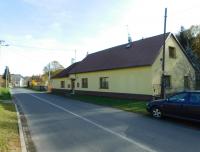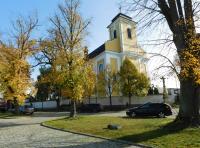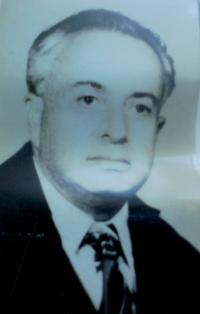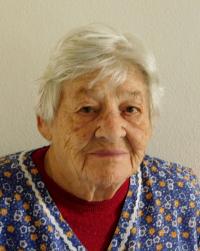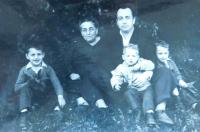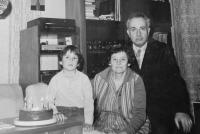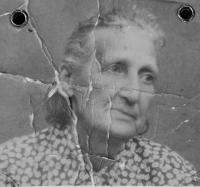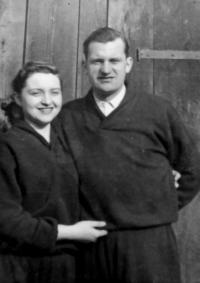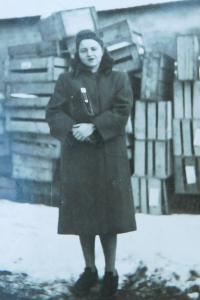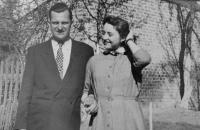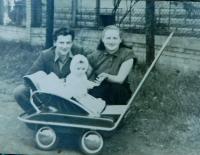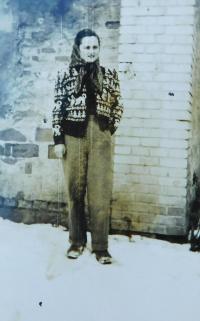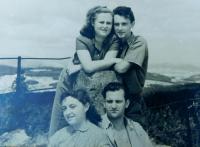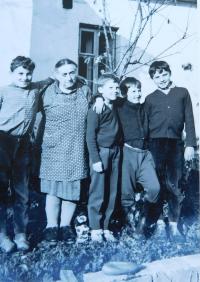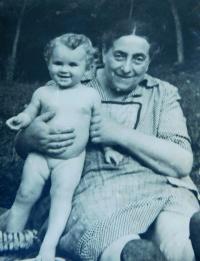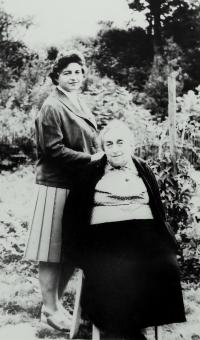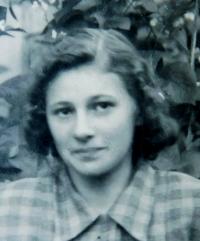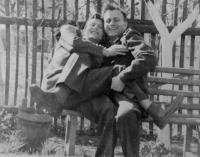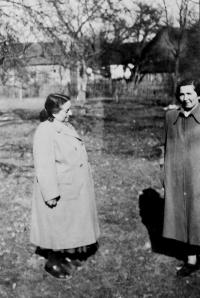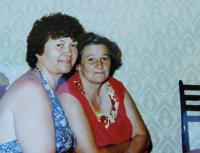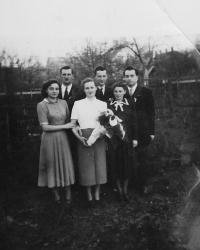At nights I often had to wake my husband because he had nightmares about the horrors he had suffered and he shouted

Download image
Věra Buxbaumová, née Konečná, was born on November 11, 1931 in Šternberk. Her parents ran a butcher’s shop in this predominantly German town. Shortly after the takeover of the Sudetenland by the Nazi Germany in October 1938 the family had to leave the town in haste at night. Věra’s father was in danger of being arrested. They were only able to return to the town nearly seven years later. However, in 1949 their butcher’s shop became nationalized by the communists. Věra’s father Jakub Konečný was no longer alive at that time. He had died as a consequence of an injury when he was hit with a rifle butt by a Soviet soldier to whom he refused to surrender his horse. In 1953 Věra married Rudolf Buxbaum, who had been in concentration camps Terezín, Auschwitz and Schwarzheide during the war due to his Jewish origin. He was one of the few who have survived the death march of prisoners. His parents and siblings have survived the war in concentration camps as well, but many of his relatives were murdered by the Nazis. Věra and Rudolf Buxbaum lived together for thirty-one years and they raised sons Jindřich, Pavel and Rudolf. The internment in concentration camps took its toll on her husband’s health and he died in 1984 when he was fifty-nine years old. Věra Buxbaumová was still living in Nová Hradečná in 2018.
